The velocity-time graphsof a car and a scooter are shown in the figure. (i) The difference between the distance travelled by the car and the scooter in 15 and (ii) the time at which the car will catch up with the scooter are, respectively.
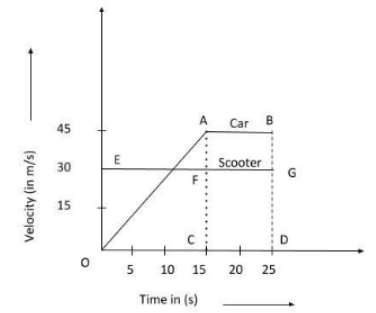
225.5m and 10s
112.5m and 15s
112.5m and 22.5s
337.5m and 25s
The correct Answer is:C
Step by step video & image solution for The velocity-time graphsof a car and a scooter are shown in the figure. (i) The difference between the distance travelled by the car and the scooter in 15 and (ii) the time at which the car will catch up with the scooter are, respectively. by Physics experts to help you in doubts & scoring excellent marks in Class 12 exams.
Updated on:21/07/2023Topper's Solved these Questions
Similar Questions
As soon as a car just starts from rest in a certain direction, a scooter moving with a uniform speed overtake the car. Their velocity- time graphs are shown in Fig. 3.38. Calculate (i) the difference between the distance travelled by the car and
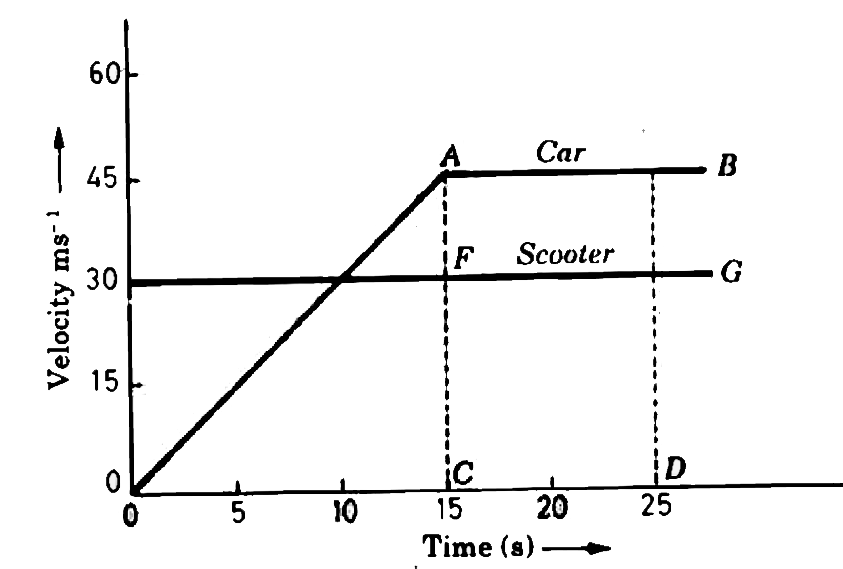
the scooter in 15 s (ii) the time when the car will catch up the scooter and (iii) the distance of car and scooter from the starting point at that instant.
View SolutionAs soon as a car starts from rest in a certain dirction, a scooter moving with a uniform speed overtakes the car. Their velcity-time graphs are shown in Fig. 2 (b) .19.Calcutate<br>(a)thed⇔erencebetweenthedistancestravel≤dbythecarandthesc∞ter∈25 s.
(b) the time when car will catch up the secooter.
(c ) the distance of the car and scooter from the starting point at the meeting point.
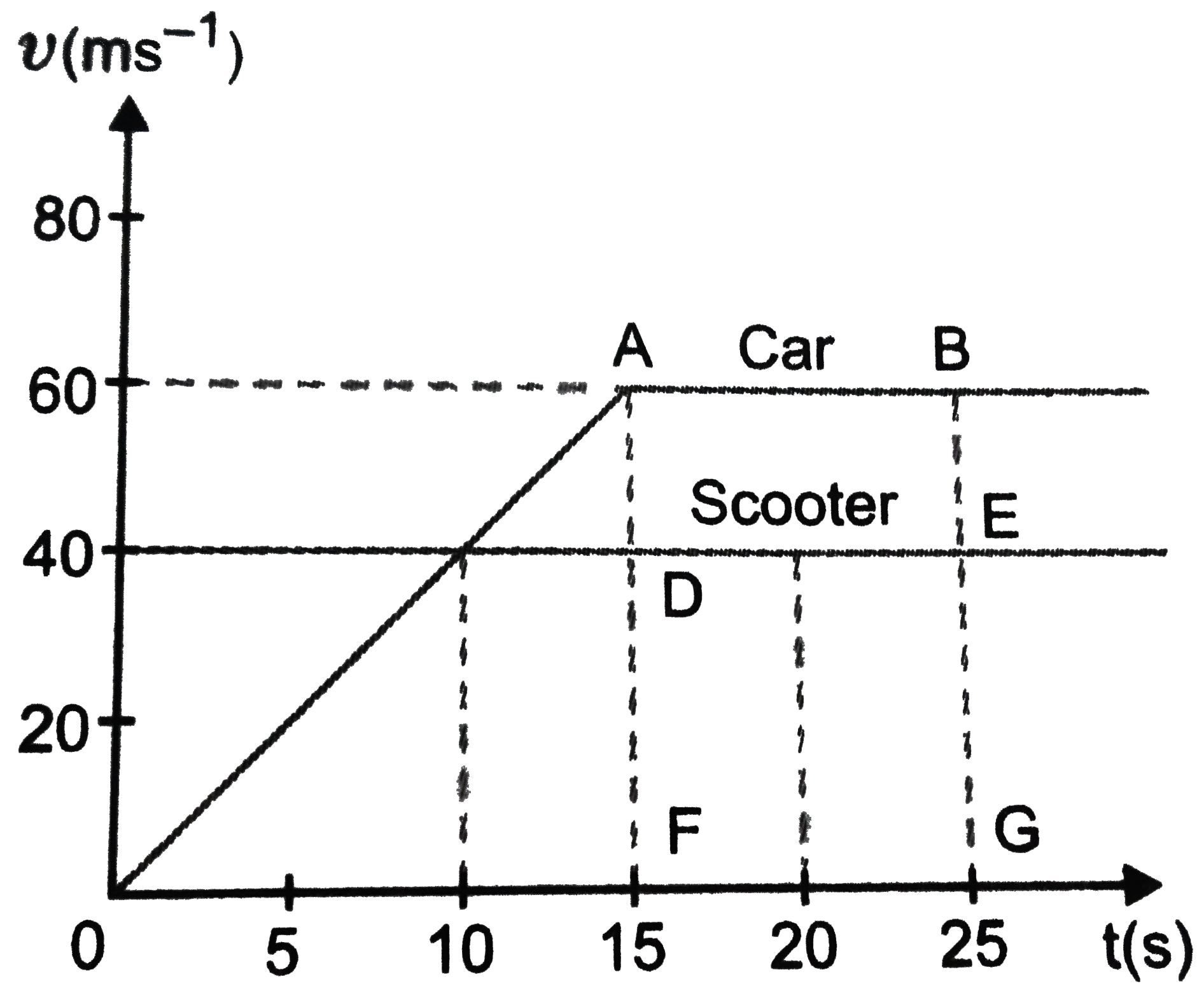 .
.
View Solution
Knowledge Check
As soon as a car just starts from rest in a certain dercation, a scooter moveing with a uniform speed overtakes the car. Their velocity-time graph is shown in . Calculate
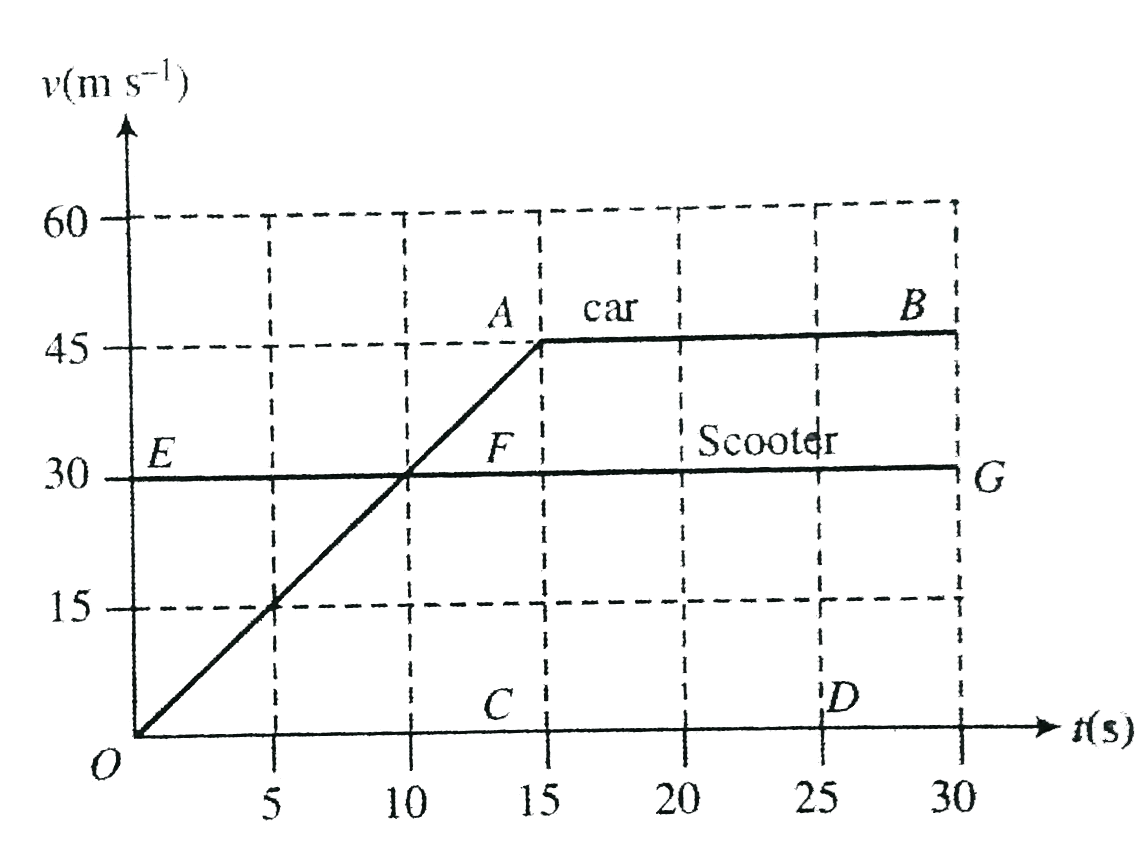 .
.
a. The difference between the distances travlled by the car and the scooter in 15s,
b. Find the time at which the car passes the scooter and the distance of car and scooter from the starting point at that instant.A110m 22.5s 600mB112.5m 25s 675mC112.5m 22.5s 675mD1125m 22.5s 675mThe velocity- time graph of car moving on a straight track is given below. The car weight 1000kg.
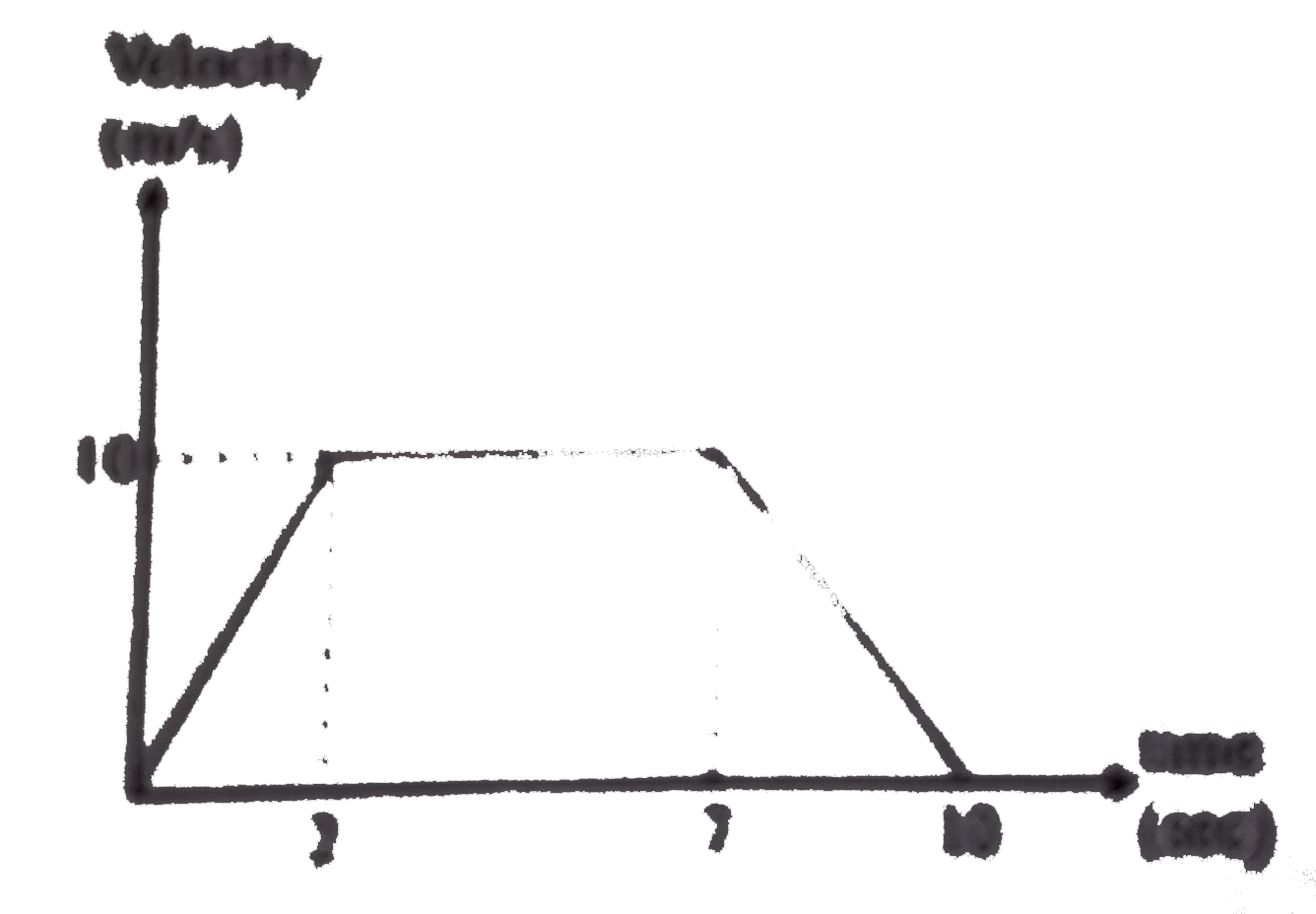 The distance travelled by the car during the whole motion is:A50mB75mC100mD150m
The distance travelled by the car during the whole motion is:A50mB75mC100mD150mThe distance x travelled by the car in above problem in time t is given by -
Ax=t22(αβα−β)Bx=t2(αβα+β)Cx=t2(α+βα−β)Dx=t22(αβα+β)
A car and a scooter has collided.
View SolutionThe distance versus time graph of a car is shown in the given figure.
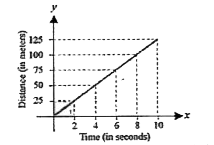
View SolutionThe speed of a car as a function of time is shown in figure.
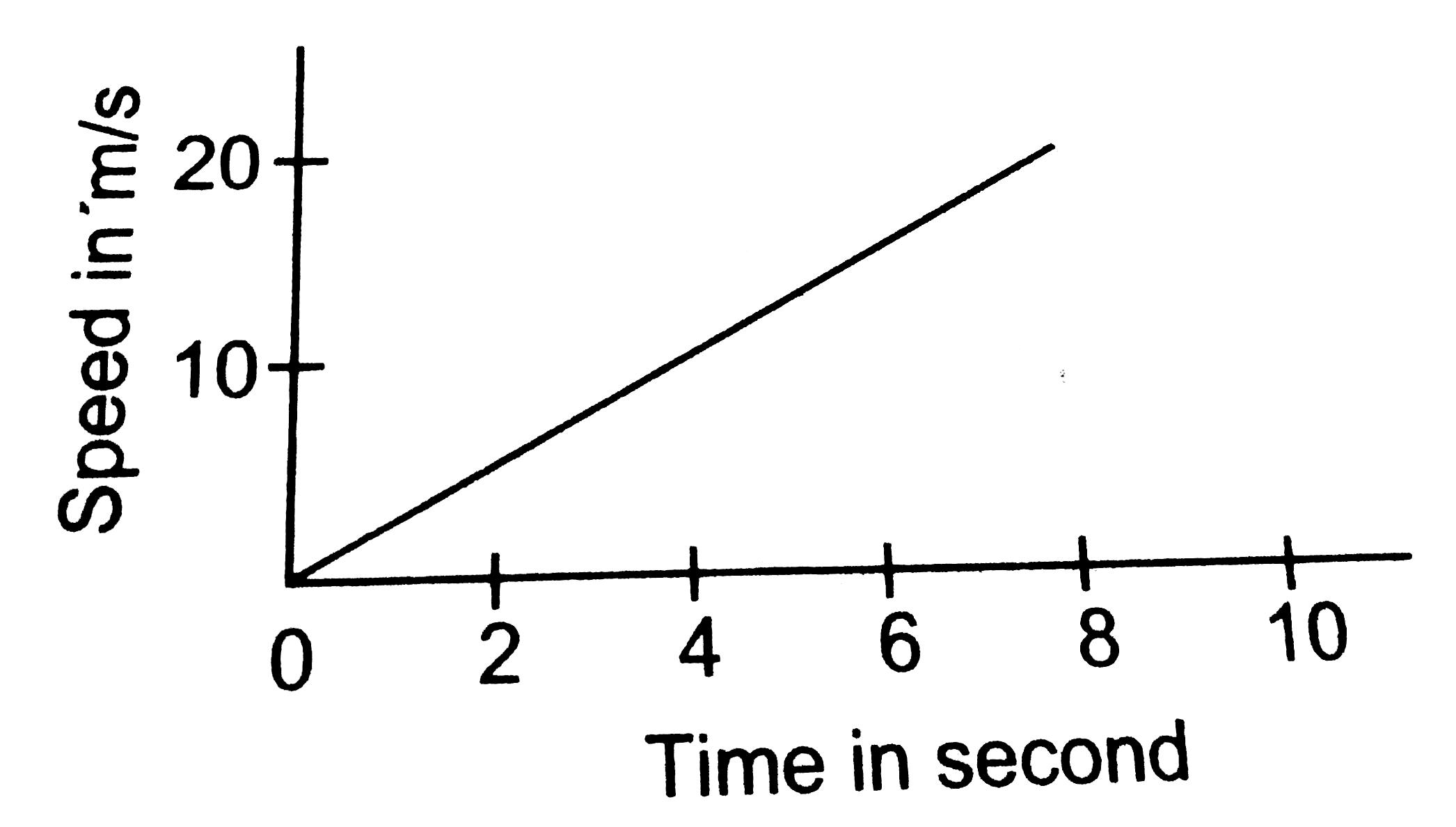
Find the distance travelled by the car in 8 seconds and its acceleration.
View SolutionThe velocity of a car as a function of time is shown in Fig. Find the distance travelled by the car in 8s and its acceleration.
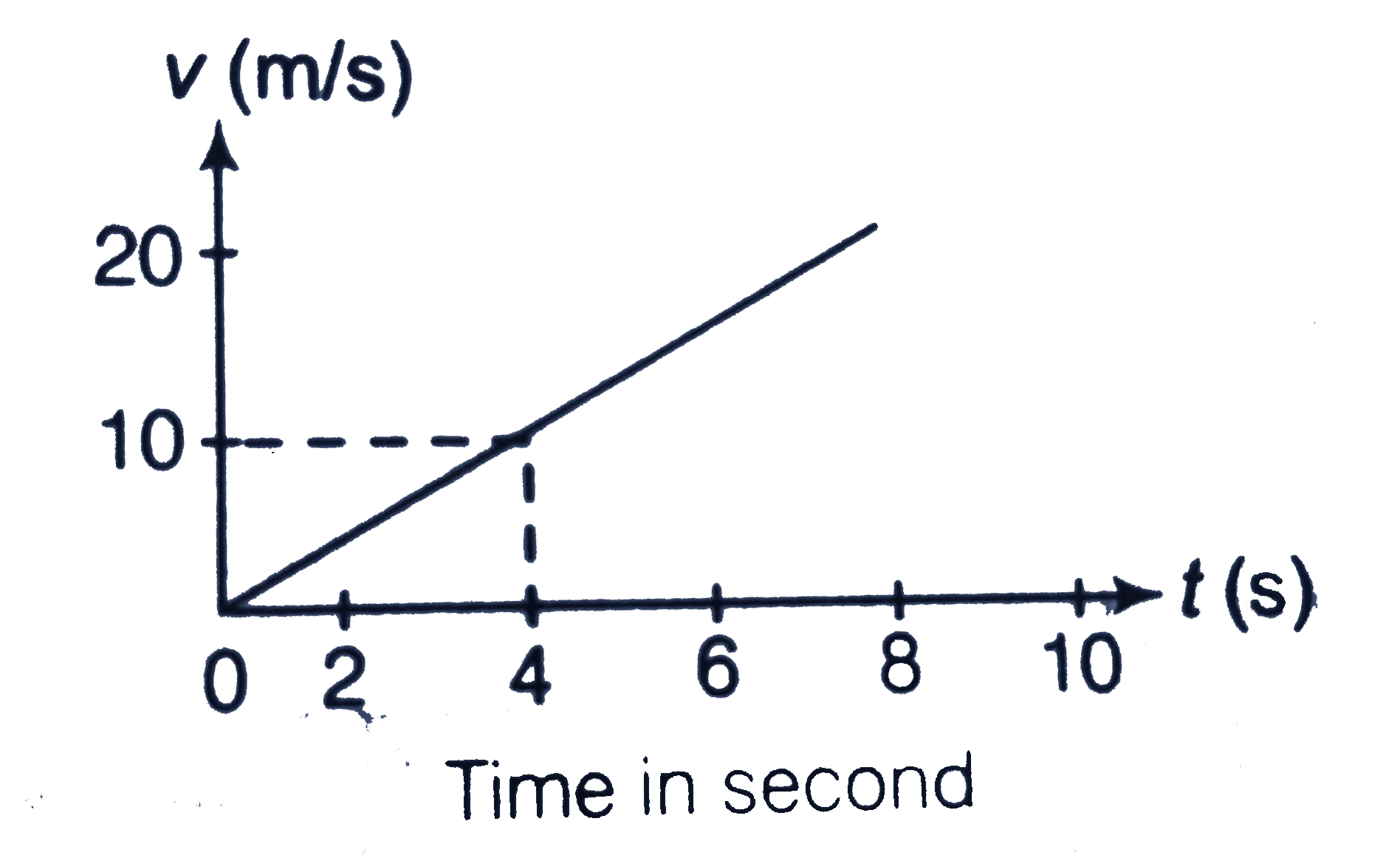
View SolutionThe velocity-time graph of a car moving along a straight road is shown in figure. The average velocity of the car in first 25 seconds is
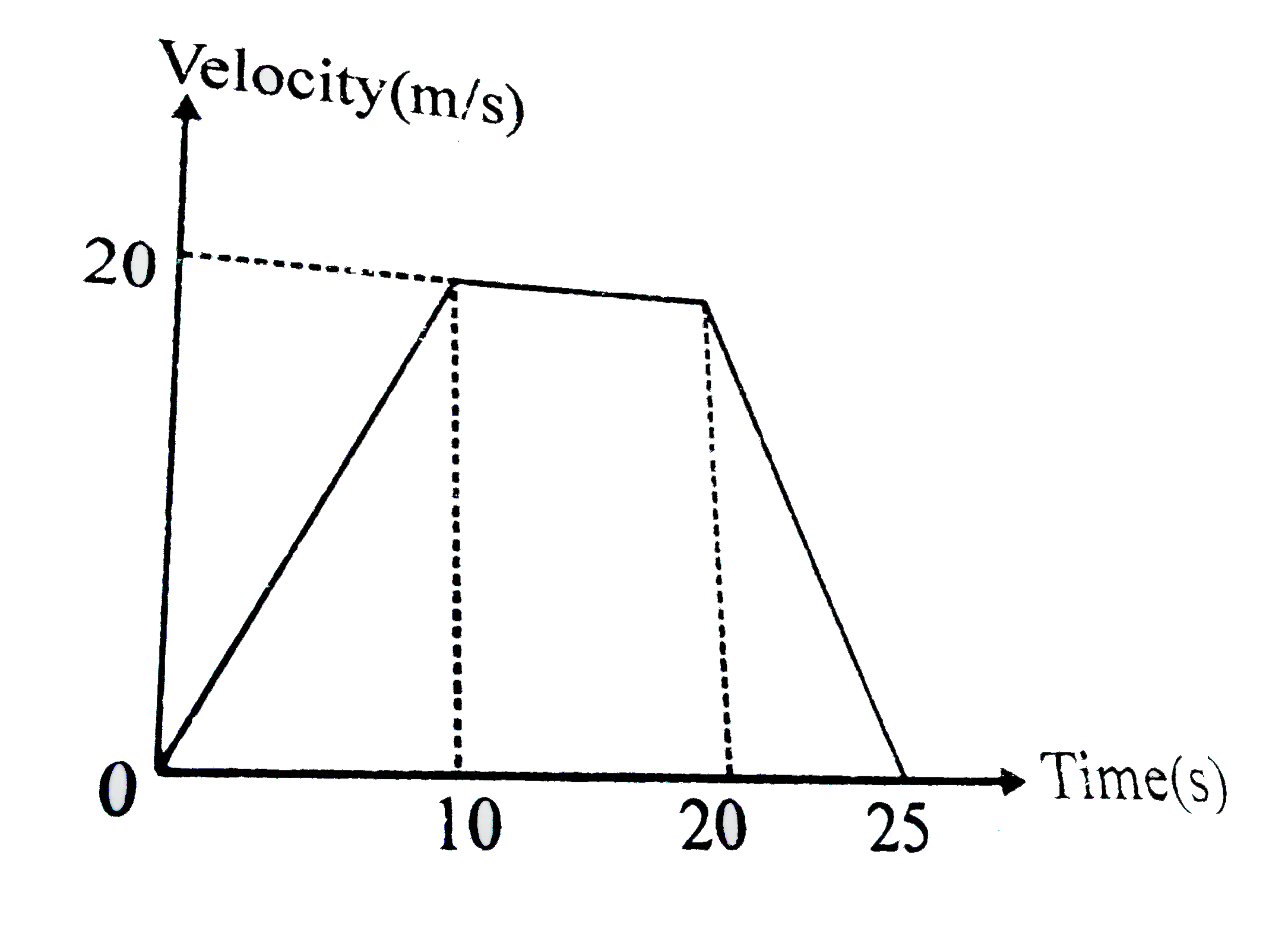
View Solution
